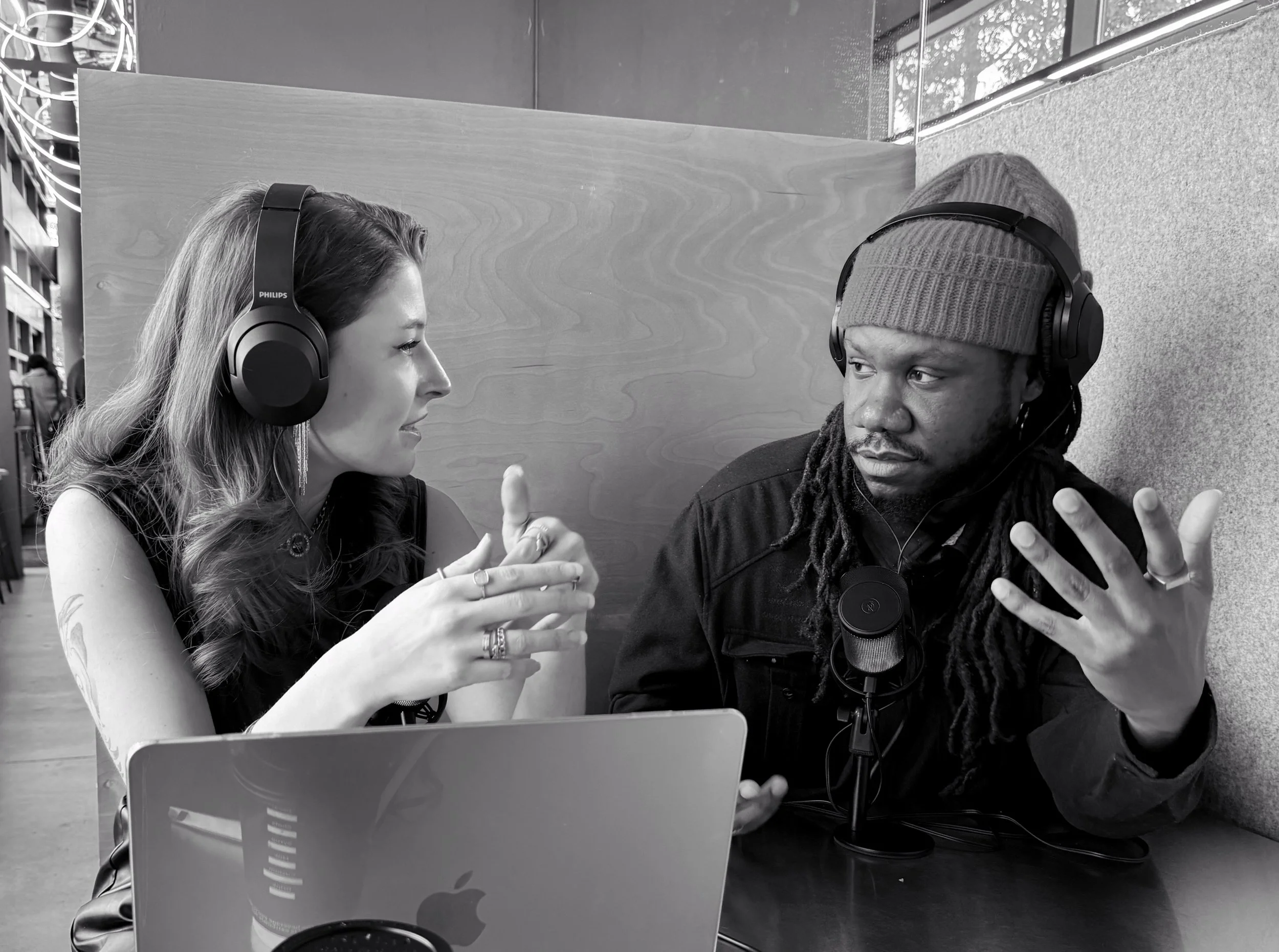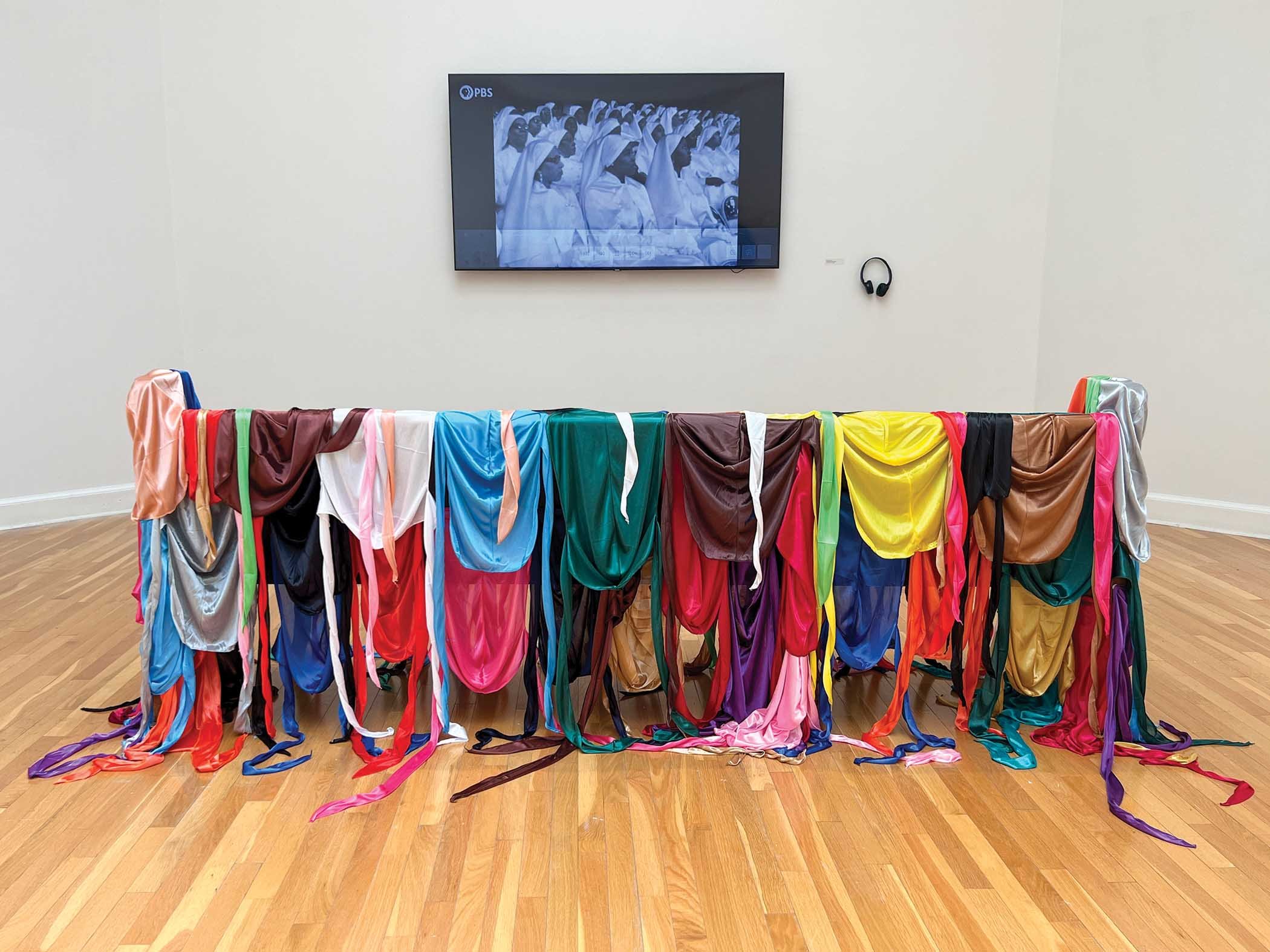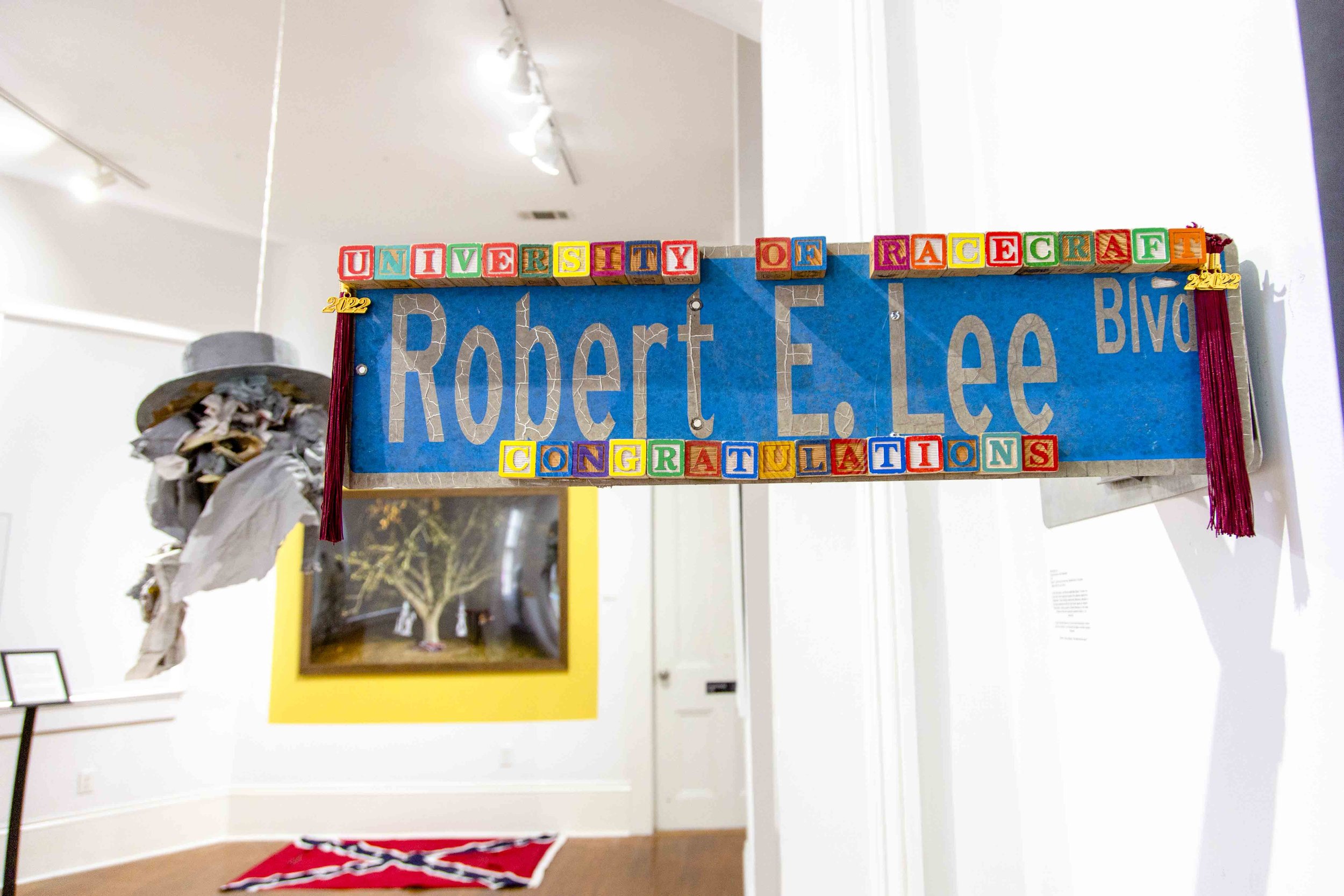Nic[o] Brierre Aziz“I find, what gives me solace or peace with [letting go of a piece] is focusing on gratitude. Somebody is buying from me and basically saying I would really like living with this and living with this thought of yours”
About the Artist.
Nic[o] Brierre Aziz is a Haitian-New Orleanian interdisciplinary artist and curator born and raised in New Orleans, LA. His current practice is deeply community-focused and rooted around the utilization of under-discussed personal and collective histories to reimagine the future. His work is also very centered around the Caribbean Diaspora, and he is very interested in Blackness as an experience, construct, and capitalist tool. He has worked extensively leading community-engaged projects throughout New Orleans with entities such as the Office of Mayor Mitch Landrieu, Antenna, The Joan Mitchell Center, the Arts Council of New Orleans, Prospect, and most recently, the New Orleans Museum of Art. He is also the manager of the Haitian Cultural Legacy Collection, a collection of over 400 artworks started by his maternal grandfather in 1944. He has contributed to publications such as HuffPost, Terremoto, and Hyperallergic, and his work has been featured by The Oxford American, The Associated Press, and The Alternative UK. He is also the recipient of several artist residencies and fellowships and most recently was selected as a 2020 Andy Warhol Foundation Curatorial Fellow and a 2021 Joan Mitchell Center Artist-in-Residence. He obtained a Bachelor of Arts degree from Morehouse College and a Master of Science degree from The University of Manchester (UK) and will be pursuing a Master of Fine Arts Degree with a concentration in Sculpture from the Yale University School of Art starting in Fall 2023.
Artist Statement
Up until the 8th grade, I was what one would consider an “exceptional student.” These years were spent in catholic schools, despite my mother working as a social worker in public schools, and I always found myself at the top of my class. I was even skipped to the fourth grade less than two months into my third-grade tenure because of my exceptionality – but despite this prowess, when I began the 8th grade at what was at the time considered the “best” high school in New Orleans, there was a colossal shift. Suddenly, my joyous, curious, and intelligent being was thrown into an environment that was extremely destructive to my self-identity. This all-male 95% white catholic space was a treacherous jungle for anyone who did not fit this homogeneously rigid mold – and my boldly black facial and cultural features, along with my “weird” last name, were as arguably as antithetical to this environment as one could get. My discomfort manifested itself in barely maintaining a 2.0-grade point average and often finding myself in detention (known as “Penance Hall”) for infractions such as unshined shoes and crooked nametags. This internal and external feud became so serious that I would often come home to my parents and contest my inferiority by telling them that they had to “accept that I was mediocre and stupid.” This mental affliction was so debilitating that my vehement contention was being made with a mother who was born in the first independent Black republic in the world and a father who was a former member of the Nation of Islam. Thankfully, one of the costliest natural disasters in world history liberated me from this mental captivity and changed my life for the better. I would go on to have numerous life experiences that prompted me to go inward and accept the beauty of my individuality. This is an exercise that is exceedingly difficult for any human on this perplexing planet – but especially for “minority” individuals in a country that was built upon (and continues to exist upon) the literal devaluation of their lives. These tribulations and their relationship to identity, truth, and liberation have, as a result, become fundamental to my interdisciplinary practice. One of the often overlooked aspects of white barbarism (more broadly referred to as “white supremacy”) is the mental impact of erasure and marginalization. The personal and collective revolution always has and will continue to exist within the utilization of under-discussed narratives to reimagine more righteous futures. I seek to create work from the dark matter that uplifts and heals while exposing truths that enable us all to tread down a more collectively harmonious path of liberation.
Instagram: nicoelganso
Website: www.nicbrierreaziz.com
Publications:
Hyperallergic: ‘When “Art” Dies, the Community Will Thrive’ November 21, 2021
Burnaway: “I’d rather get out of jail than get 1,000,000 dollars”: Nic[o] Brierre Aziz at Antenna Gallery, New Orleans BY LUCIA OLUBUNMI R. MOMOHAPRIL 04, 2023
Strange Brute (Hanging From The Poplar Trees) II, 2022. Archival print of time-based performance. Courtesy of the artist.
My God Wears A Durag, 2022. Sculpture and video. Image by Linda Reno. Courtesy of the artist.
Installation view of Room 1, Antenna Second Floor Gallery in “I’d rather get out of jail than get 1,000,000 dollars” at Antenna Gallery in New Orleans. Courtesy of the artist and Antenna Gallery, New Orleans.
Detail image of Juguete in Antenna Second Floor Gallery in“I’d rather get out of jail than get 1,000,000 dollars” at Antenna Gallery in New Orleans. Courtesy of the artist and Antenna Gallery, New Orleans.
Drive Slow Homie (Late Registration), 2023. Mixed-media. Image by Linda Reno. Courtesy of the artist.
01/19/24
Atlanta, GA
Hosted and Produced by Leah Grace Craig
Guest Staring Nic[o] Brierre Aziz
Publication www.palettechats.com













